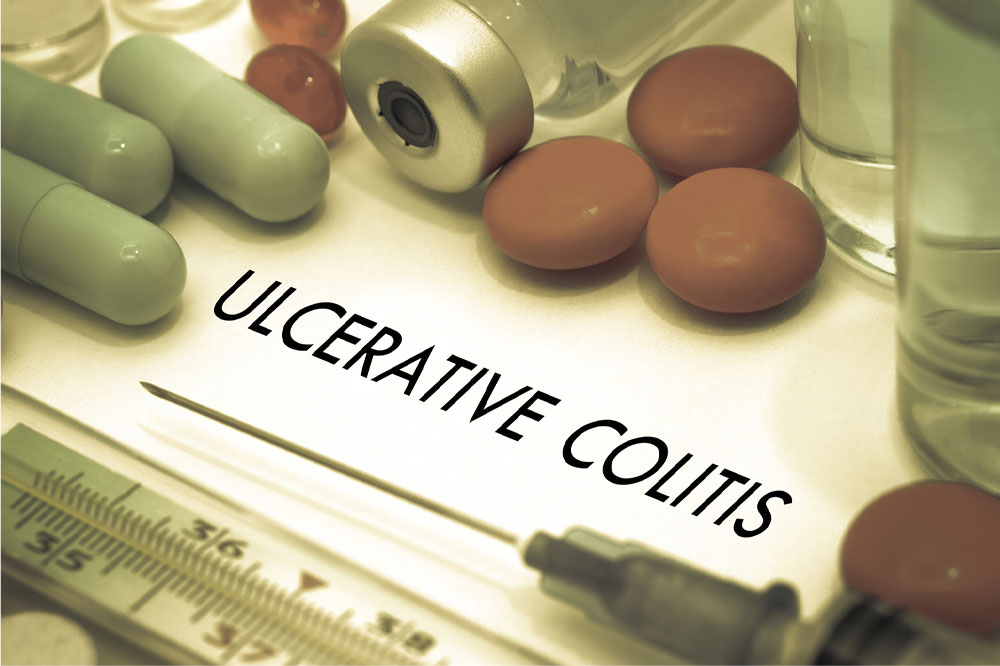
Ulcerative colitis – Symptoms, causes, and remedies
Ulcerative colitis (UC) belongs to a class of inflammatory bowel diseases (IBDs) that affect healthy organs in the digestive tract. This health condition mainly develops in the large intestine and rectum, causing inflammation and ulcers that damages the organ’s lining. The disease progresses slowly and remains undiagnosed till the symptoms flare unexpectedly, causing abdominal pain and problems with bowel movements. The known causes, symptoms, diagnostic methods, and treatment options for ulcerative colitis are listed below.
Causes and risk factors
Advancing age
Old age is one of the primary risk factors when it comes to developing digestive disorders like UC. In many cases, the risk of progression starts from around the age of 30, but ulcerative colitis develops aggressively after 60.
Family history
A family history of digestive disorders also increases the risk of chronic problems like ulcerative colitis developing among the next generation. The problematic genetic code gets passed down from the carriers to their children.
Autoimmune response
When the immune mistakenly attacks healthy cells of the body, it can also trigger inflammation that damages the inner lining of the intestine. Autoimmune responses increase the intensity of flare-ups as the disease progresses.
External factors
Pollutants in the environment, side effects of prescriptions, and changes in daily meal plans by introducing foods that cause inflammation also increase the risk of ulcerative colitis. Certain unhealthy lifestyle choices also speed up the progression of the disease.
Symptoms
The symptoms of ulcerative colitis can be uncomfortable. Individuals may experience different types of discomforts with varying intensity, including the following-
- Abdominal pain and cramping
- Diarrhea and passing stools with blood or mucus
- Urgent need to have a bowel movement
- Rectal bleeding that indicates tissue damage
- Fatigue and weakness
- Loss of appetite
- Unexplained body mass loss
Depending on the condition’s progression, the symptoms may flare up frequently or cause short episodes of pain and discomfort. Either way, one must consult a healthcare professional at the earliest to prevent further complications from developing.
Diagnosis
The diagnosis of ulcerative colitis can be made with multiple tests before or after the flare-up of known symptoms. It usually involves the following steps-
- A review of health history- A health expert will start by asking about persistent symptoms and reviewing family history to understand if there is any underlying genetic risk that requires immediate attention.
- Physical examination- The doctor will also investigate for any signs of tenderness, swelling, or inflammation in the abdomen that could indicate damage done to vital organs. It is the first step before imaging tests are suggested in case a physical exam remains inconclusive.
- Blood tests- Depending on the acuteness of the inflammation or anemia, the doctors will suggest blood tests to evaluate samples further and confirm colitis. The blood cells will show these markers, making it easy to narrow down the causes or underlying risk factors.
- Stool sample- A stool sample is also collected to check for signs of infection or inflammation.
- Endoscopy- The rectum and colon are examined with a long, thin tube with a camera inserted into them. Depending on the symptoms, the doctor may perform a colonoscopy, sigmoidoscopy, or upper endoscopy. X-rays, CT scans, and MRIs may also be recommended for tracking severe colitis progression.
- Biopsy- If inflammation or abnormal growths are discovered during endoscopy, the doctor may take a biopsy to examine the tissue under a microscope.
- Imaging tests- Imaging tests such as CT scans or MRIs may be recommended to check for complications such as abscesses or blockages.
Diagnosing ulcerative colitis can be challenging; therefore, seeking prompt attention and getting a proper diagnosis to receive timely treatment is important.
Treatment options
One of the primary purposes of ongoing treatment is to prevent remissions and inflammation episodes from damaging the healthy intestine lining. It can be achieved in one of the following ways-
Prescriptions for flare-up management
Gastroenterologists will prescribe a combination of anti-inflammatory prescriptions to counter inflammation. They target and block the immune system receptors that trigger inflammatory responses.
Surgical procedures for severe colitis
When prescriptions fail to yield any result, specialist surgery is needed to treat and extract the damaged portion of the intestines. Complete colon and rectum removal might be necessary to prevent colitis from further damaging vital organs or disrupting digestive functions. The small intestine is then directed through an incision in the abdominal wall for waste to collect in an external bag. Alternatively, surgeons might consider rebuilding the rectum using the small bowel after removing the damaged colon. It is a laparoscopic procedure that is easy to recover from and leaves little scarring.
Many clinical trials test the efficacy of new remedies to manage ulcerative colitis better. Doctors can suggest a trial if other options are not helpful. Furthermore, healthy changes in daily nutrition and lifestyle will help prevent flare-ups and symptoms from worsening. Post-treatment care is equally essential to ensure no complications develop alongside colitis.




